Building Regional Strength: A Call to Action
Insights and recommendations to build healthy, thriving rural & Indigenous regions.
Rural Resources, Insights, and Collaborations by Aspen CSG and Partners
Insights and recommendations to build healthy, thriving rural & Indigenous regions.
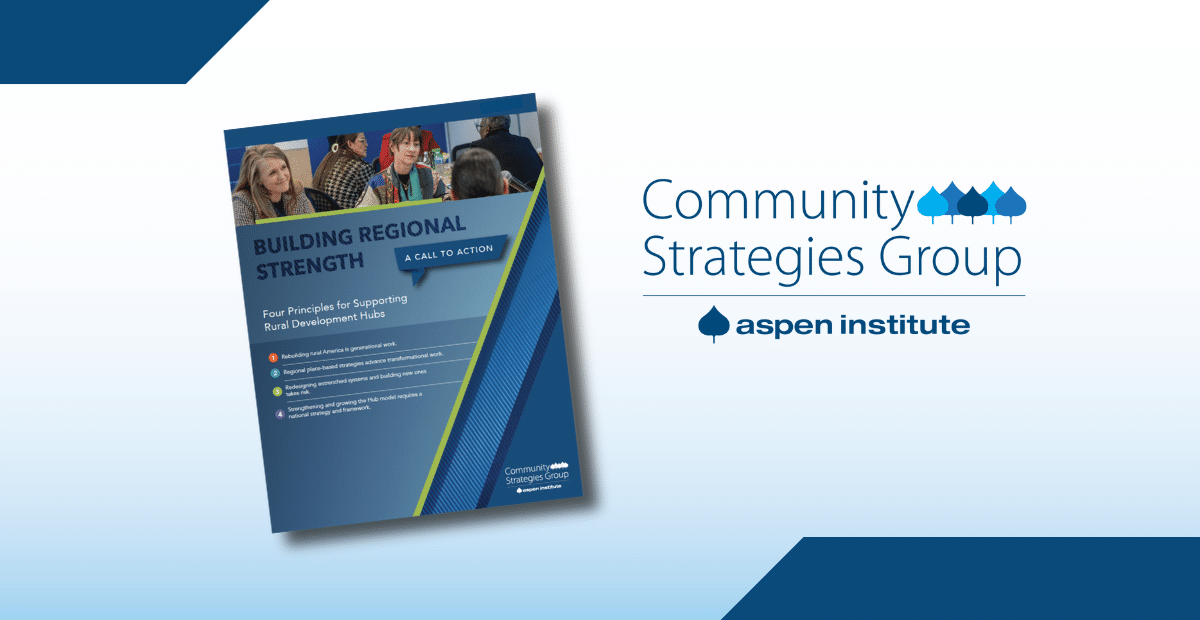
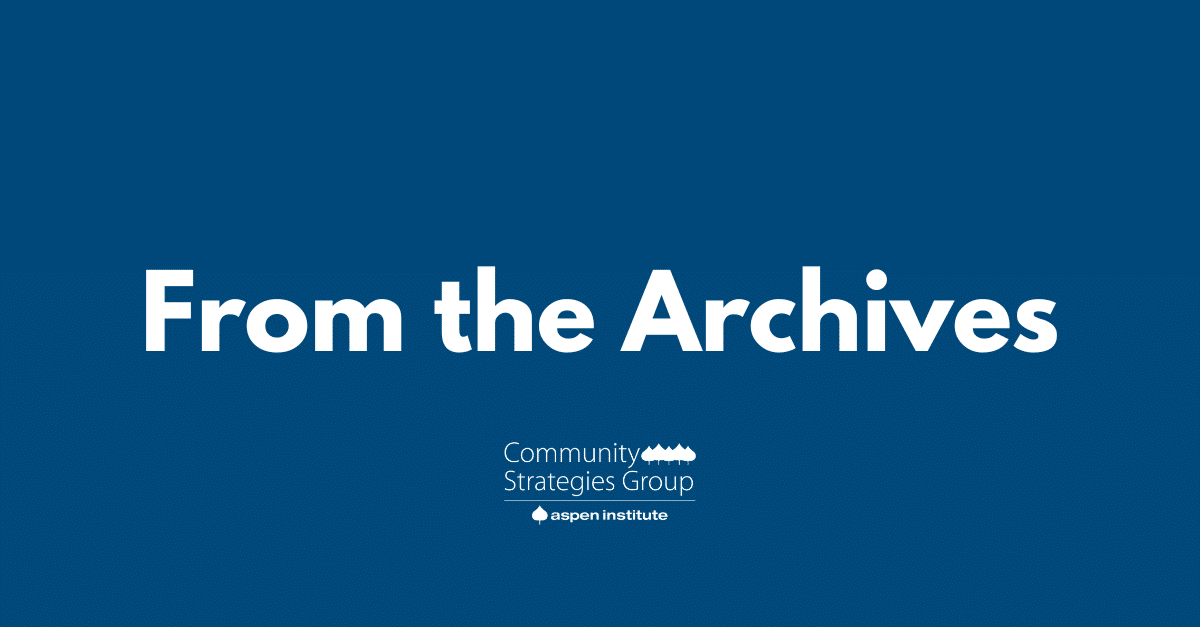
This review article, "POVERTY AND OPPORTUNITY STRUCTURE IN RURAL AMERICA" by Ann R. Tickamyer and Cynthia M. Duncan, examines the persistent and severe issue of rural poverty in the United States.
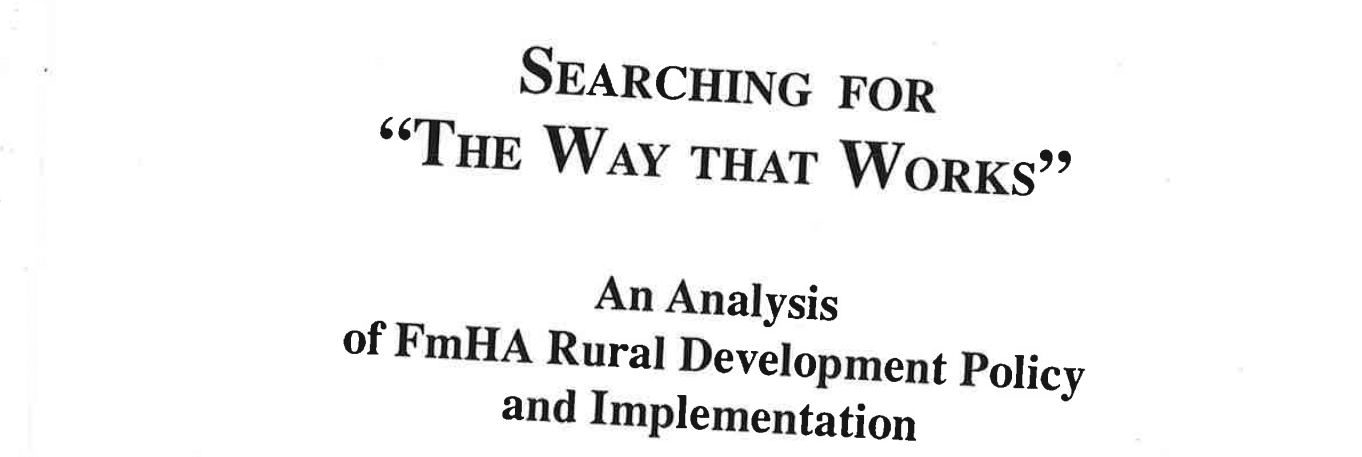
Report describes five basic models for delivering federal benefits, and develops thirteen criteria by which these delivery mechanisms can be evaluated.

Review of rural poverty and its historical roots in social, political, and economic inequality and current economic restructuring.

Report examines growing number of African American female-headed families in the United States.

Manual was prepared in order to present reliable and timely data as a prerequisite for sound planning and policy development.

Examine the impact of state economic development policies on small agricultural communities in six 'middle border' states, with related policy recommendations.
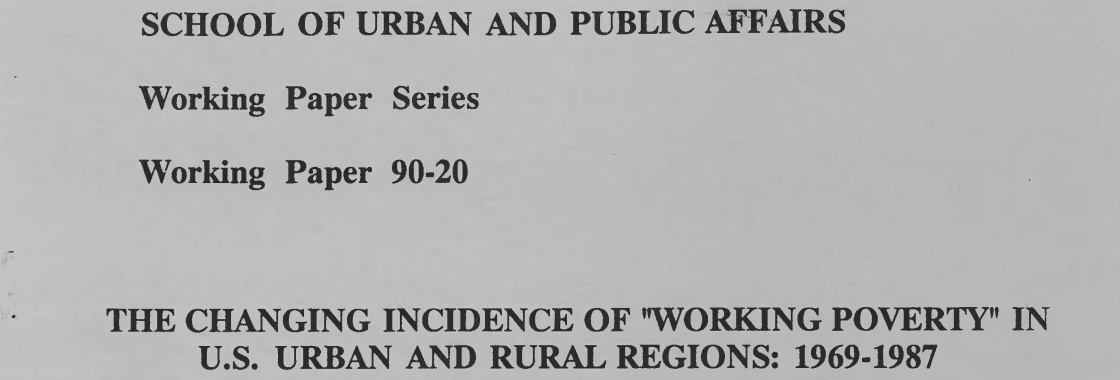
Paper examines how many individuals aged 16 and older earned at least some wages and salaries over the course of a year but had families which nevertheless had aggregate annual incomes which left them below the official census poverty line for a family of their size and structure.
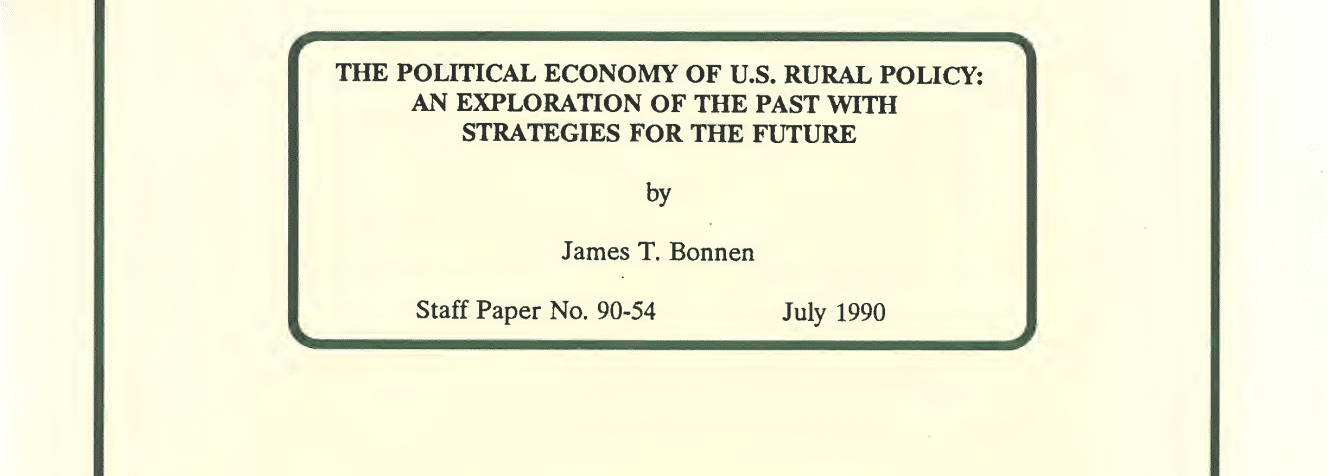
Researchers argue that there exists a need for a national rural policy of some sort after years of solely agricultural-focused policy.

Report presents key findings of a Public Voice nationwide study that sought to examine the access to supermarkets in rural America.
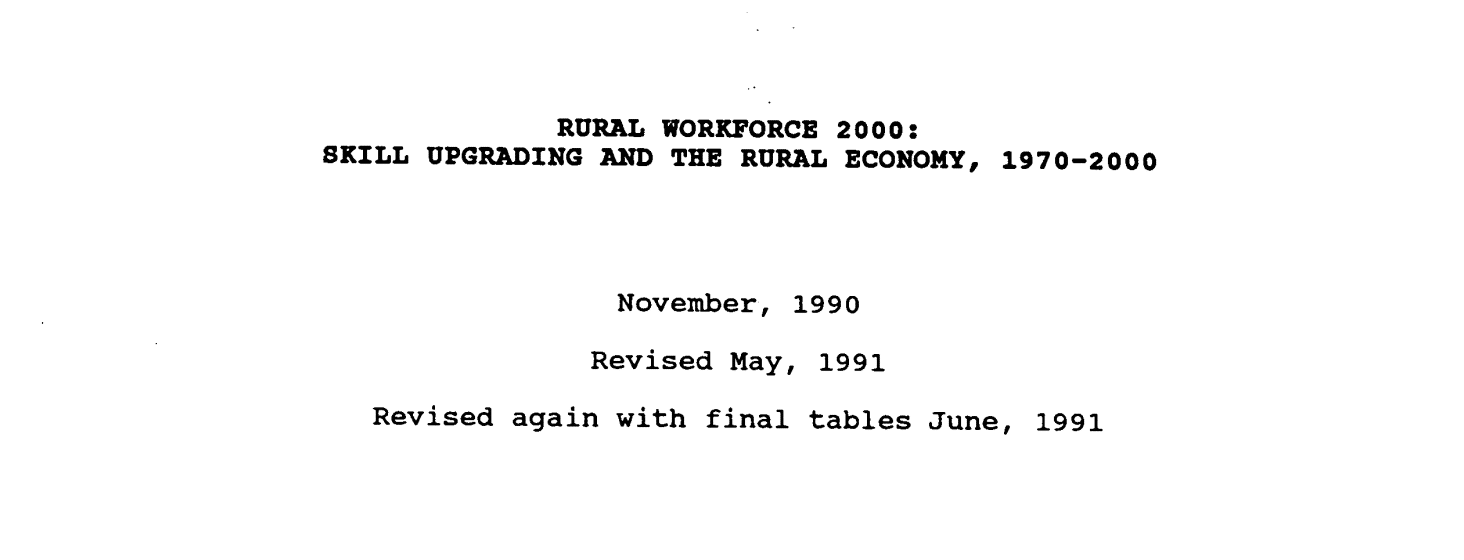
Report seeks to address the importance of upgrading the skill levels of rural works to match the skill levels of available jobs.
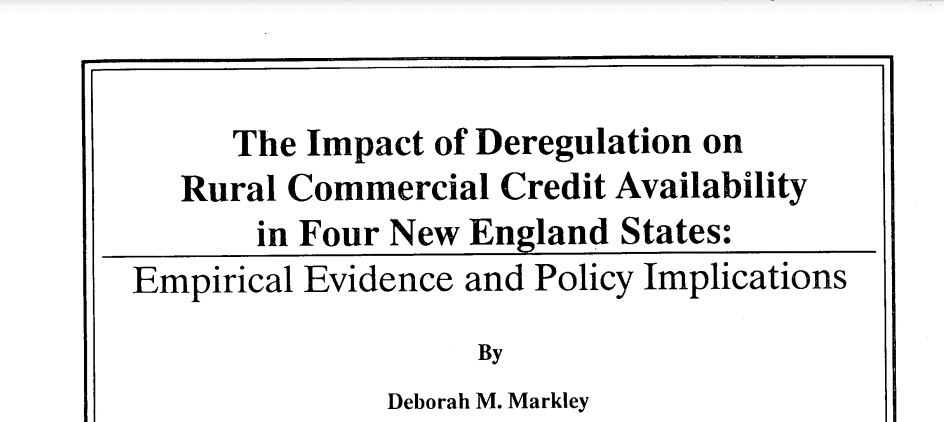
Report highlights the role of Local commercial banks as an important source of capital for small businesses within their local service areas.
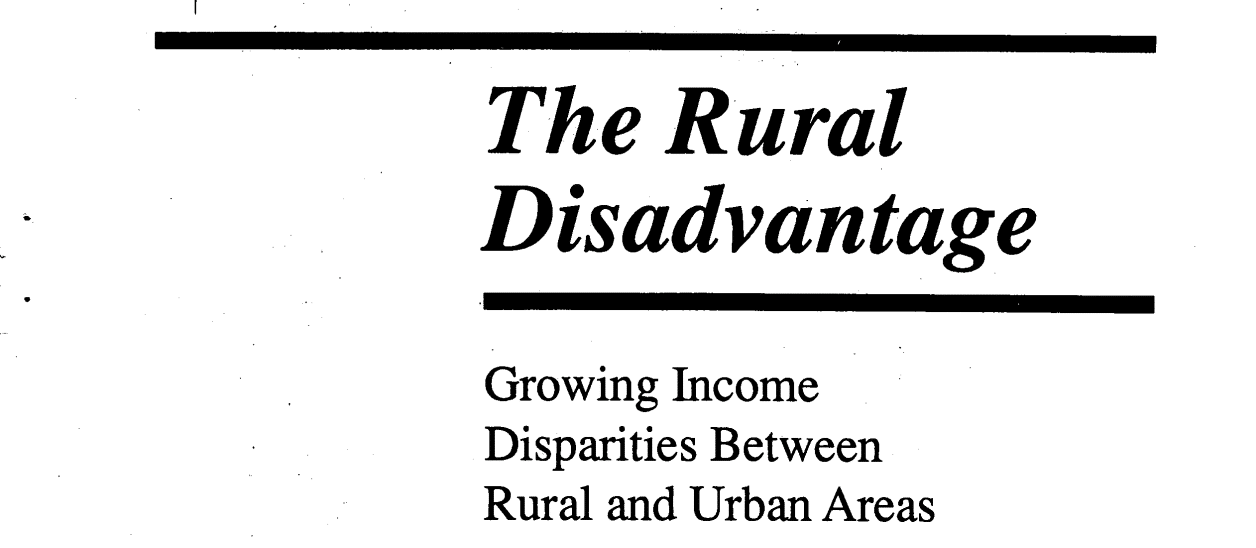
This paper demonstrates a widening income gap between rural residents and urban residents.